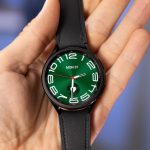It comes as disease experts say it’s time to put “unwarranted fears” to rest about coming back to the office due to strengthened “hybrid immunity” now the winter peak has passed.Active cases in late July peaked at more than 70,000 but the winter wave has subsided in time for spring, with virus cases now dwindling towards the 15,000 mark.This, combined with increased hybrid immunity – the medical term for protection gained from virus infection plus vaccination – means Victorians have far less to fear when heading into the city for work, experts say.Victoria’s deputy chief health officer Clare Looker said: “Currently, there are fewer Victorians with Covid-19 or influenza than there were earlier in winter.“For this reason, more employees may feel comfortable returning to the office and less workers will be staying home with illness.“Employers and employees should continue to work together to determine the most appropriate work-from-home arrangements for employees according to their workplace and individual needs.”Dr Looker added Victorians should still wear face masks when they couldn’t socially distance, and good ventilation inside was vital.Former deputy chief medical officer Nick Coatsworth said Victorians of working age were not within the Covid risk demographic unless they had underlying health issues. “If you’re of working age, your risk is so small that, really, there’s no reason you can’t be back in the workplace,” he said. “There could be another variant that is sufficiently different that we get a big wave again – that’ll always be possible from now until we’re not on the planet anymore – but the likely outcome is that we don’t have any more peaks of the intensity we had in January and July.”Also boosting the optimistic outlook is the state of play in South Africa, where the Omicron variant was first spotted about two months before it arrived here. As yet, South Africa has not been struck by a new variant, reducing the risk of another wave.Deakin University epidemiology chair Catherine Bennett said: “Workplaces have to think about their safety and communicate that to their staff so they can put some unwarranted fears to rest, because people just think, ‘We’re told workplaces are bad, we’re told we should stay home, what’s changed?’ and a lot has changed. “Those people who become disproportionably fearful, we don’t want to sustain that. We need those people to understand that they can be part of the community and still manage Covid.”Coming back into offices in greater numbers was also now far more viable, Professor Bennett added.“We don’t want to be in a situation where people are too fearful to go into the office,” she said. “It’s about workplaces working with their people … it’s not about calling people out, but reassuring them that it’s a safe place.”Infectious diseases physician Paul Griffin said returning to CBD activity was safe as long as risks were addressed with measures like social distancing and ventilation. “We know there have been a lot of issues with reduced foot traffic in the CBDs, so it is a balance,” Dr Griffin said.“There’s many businesses where some kind of direct interaction would be of benefit.”Australian National University medical school’s Peter Collignon, also an infectious diseases physician and microbiologist at Canberra Hospital, said vaccination combined with natural immunity from contracting the virus meant the risk was a lot lower.PLEA TO HEAD BACK TO CITYAs balmy spring weather lifts spirits, Melburnians have been urged to return to the city for work and play to boost business, cultural and social activity as balmy spring weather lifts spirits.With CBD office occupancy rates the lowest of any capital city, civic and business leaders say now is the time for a mass return of workers.Supporting the Herald Sun’s Comeback Melbourne campaign, Lord Mayor Sally Capp said the city council was working with employers to lure back city employees.“It’s so important for people to come back because we’re a city based around people, and people having great experiences in the city,” she said.“The weather expands the number of activities they can do in the city, whether it’s walking in laneways to see the new street art, looking at pop-up shops, or going to some of the big exhibitions like Picasso, there’s something for everybody.” Premier Daniel Andrews, who is under increasing pressure to order public servants back into town, has only said that there was no rule against going to the office. “When the chief health officer provides advice, that if you can work from home you should, and that if you can wear a mask then you should wear a mask, then I’m inclined to follow that advice,” he said on Sunday.“It’s what I’ve always done, some people criticise that and some people think it’s the right way to go.”The government’s ambivalence to encouraging a mass return has led to CBD office occupancy slumping to 38 per cent in July.And an RMIT study found only one in eight CBD workers was spending the entire working week at the office.However, the city has pockets of intense activity, especially during evenings and weekends.General activity around the city is at 86 per cent of pre-pandemic levels, while night-time activity in Chinatown and Lygon St is at 87 per cent, according to city council foot traffic data.Average weekly activity in Docklands recently exceeded pre-Covid benchmarks by 11 per cent, but the city centre can be like a ghost town on Mondays and Fridays.Victorian Chamber of Commerce and Industry chief executive Paul Guerra said it was time to really re-energise Melbourne.“It’s around the collaboration you get of coming back to the office, supporting each other, particularly through mental health,” he said.“We think it’s important for the health of the CBD, for those businesses that rely on foot traffic Monday to Friday, nine to five. It’s important for people to re-engage face to face with colleagues.”Mr Guerra said the city had so much to offer.“This time of the year, it’s the best of Melbourne, with the weather starting to improve, the global events that are on our doorstep, starting with the AFL finals, and then straight into the spring carnival,” he said.Victorian Tourism Industry Council chief executive Felicia Mariani said there were record levels of city activity in the evenings and on weekends. “Our daytime economy, however, is now the area that needs attention, and a big part of that solution is seeing more of the one million-plus people that used to commute to our city daily reconnecting in a more regular pattern,” Ms Mariani said.Australian Hotels Association chief executive Paddy O’Sullivan said hospitality was positive about the future after the Covid disruptions of recent years.Victorian MP Richard Marles said: “Obviously, we need to get to the new normal and think about how our CBDs operate in that context.” Cocktail bar Fable Melbourne, on the rooftop at 168 Lonsdale St, has been a popular venue since opening in November. Owner Gehan Rajapakse said: “I love Melbourne, and what I like to see is the burst of energy, with people always supportive of businesses, which is fantastic.”
Powered by WPeMatico





